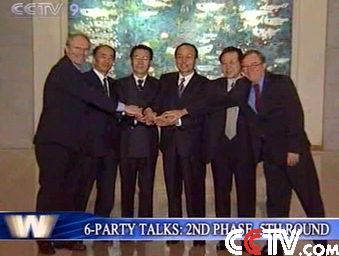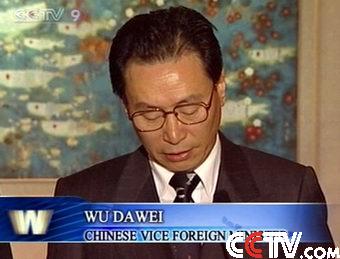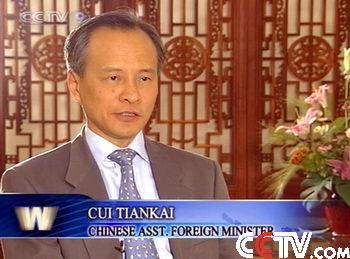China
History of first 4 rounds of 6-party talks
WATCH VIDEO
Source: CCTV.com | 12-18-2006 09:03
The six-party talks on the Korean Peninsular nuclear issue have been stalled since November last year. With the stakes rising over the past few months, many consider the actual resumption of talks a diplomatic breakthrough.
Launched in 2003, the six-party talks aimed to find a way to make the Korean Peninsula nuclear-free.
But the first three rounds of talks made little progress.
On September the 19th, 2005, for the first time, the six parties were able to agree on a joint statement at the fourth round of talks.
 |
The statement said that the DPRK should give up its nuclear programs, rejoin the nuclear Non-Proliferation Treaty, and accept inspections by the International Atomic Energy Agency.
It also include a declaration by the US that it had no intention of attacking the DPRK, and that it had no nuclear weapons on the peninsula.
As Chinese vice Foreign Minister Wu Dawei said, "The DPRK and U.S. sides promise to mutually respect one another's sovereignty, enjoy peaceful coexistence and take measures to normalize relationships based on each other's bilateral policies."
 |
But the entire process went back to the starting line late last year after the first phase of the firth round of the six-party talks in November last year.
The DPRK announced that it will not attend any new talks because of U.S. freezing of its financial accounts at a Macao bank.
Over the past 13 months, the parties involved have made continuous efforts to restart the talks.
Then came the crisis in October this year.
The DPRK claimed it had tested its first nuclear weapon, triggering widespread international condemnation and UN-backed sanctions.
China insisted the crisis should be handled through diplomatic means and called on all the parties concerned to show flexibility on the issue.
On November 1st, the DPRK agreed to return to the negotiating table after an informal meeting with the US and China in Beijing.
With this diplomatic breakthrough, the six parties are expected to hash out details of implementing the September 2005 agreement.
 |
Cui Tiankai, Chinese Asst. Foreign Minister, said "I think whatever it changes, as far as China is concerned, our position will never change, we will still stand for the denuclearation of the peninsula, maintaining of regional peace and stability, and peaceful solution of the issues.I hope all the other parties will follow the same principles.."
The six-party talks are a long and continuing process.
Analysts say that expecting any major breakthrough in a single meeting is unadvisable.
But the very resumption of the talks is a sign of encouragement.
Editor:Du Xiaodan



